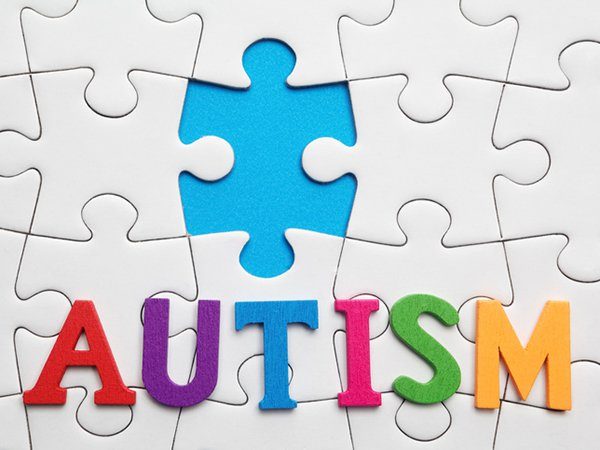
At a child’s birthday party I noticed a child who seemed to hang behind and wasn’t playing with the other kids. Judging by his size, he appeared to be about 4 or 5 years old but was interacting oddly with the others, laughing inappropriately and behaving much younger than he looked.
Our hostess confirmed later that he was 5 years old and she’d hinted to his mother a few times that something might be a little off with his development. His mother’s position was that the child’s father was a “late bloomer” as well and that his teacher had no complaints.
Worldwide, 1 in every 8 -10 children has a developmental disability ranging from mild social awkwardness to moderate speech and language delay to severe and debilitating symptoms of autism. Developmental disabilities can prevent children from interacting in a healthy way with the world around them and can significantly interfere with learning.

What is Autism?
Autism, or autism spectrum disorder (ASD), is a condition of brain development that affects how a child perceives and socializes with others, causing problems in social interaction and verbal and nonverbal communication. The disorder also includes limited and repetitive patterns of behavior.
Different combinations of genetic and environmental influences cause autism and produce a range of severity from mild symptoms to profound. The term “spectrum” shows the wide variation in challenges and strengths that each child with autism has.
Autism’s signs commonly appear between 2 and 3 years of age but can show as early as 6 to 18 months. Worldwide statistics reveal that:
- About 2% of children worldwide have autism
- Autism is four times more common in boys than girls
- Around one-third of people with autism can’t communicate verbally
- About one-third of people with autism also have an intellectual disability
- Some medical and mental health conditions are common with autism – attention deficit and hyperactivity disorder (ADHD), gastrointestinal (GI) problems, anxiety, phobias, seizures, sleep disturbances
If you have one child with autism spectrum disorder, you have a higher risk of having another child with autism. Parents or relatives of a child with autism often have minor problems with social or communication skills themselves or exhibit specific behaviors typical of the disorder.

How can you tell whether a child has autism?
There’s a wide variation in the timing of symptoms of autism. In some children, you can tell within the first few months of life. In others, autism may not become evident until about 2 years or later. Some children seem to develop normally until around 18 to 24 months of age and then stop learning new skills and may start losing abilities they already have.
Possible signs of autism in babies and toddlers:
- By 6 months, no social smiles or other warm, joyful expressions directed at people
- By 6 months, limited or no eye contact
- By 9 months, no sharing of vocal sounds, smiles or other nonverbal communication
- By 12 months, no babbling
- By 12 months, no use of gestures to communicate (e.g., pointing, reaching, waving, etc.)
- By 16 months, no words
- By 24 months, no meaningful, two-word phrases
- Loss of any previously acquired speech, babbling or social skills
Possible signs of autism at any age:
- Avoids eye contact and prefers to be alone
- Difficulties understanding other people’s feelings
- Remains nonverbal or has delayed language development
- Repeats words or phrases over and over (echolalia)
- Easily upset by minor changes in routine or surroundings
- Has highly restricted interests
- Repetitive behaviors such as flapping hands, rocking or spinning
- Has unusual and often intense reactions to sounds, smells, tastes, textures, lights, and colors
Can you prevent autism?
There’s no way you can prevent autism spectrum disorder. Extensive research DOES NOT show any links between any vaccines and autism. Avoiding childhood vaccination puts your child and others in danger of getting and spreading serious diseases, such as whooping cough (pertussis), measles or mumps.
Early diagnosis and intervention produce the best results and can improve behavior, language and skills development. Treatment and support with applied behavior therapy, physical therapy, and occupational therapy help at any age. Children don’t outgrow autism spectrum disorder but may learn to function well.
If you have concerns that your child may have autism, don’t be afraid to have him or her evaluated by a pediatrician. Early diagnosis will go a long way to bringing about a better outcome for your child.


Mir Ishaq Ali
Great information and good article